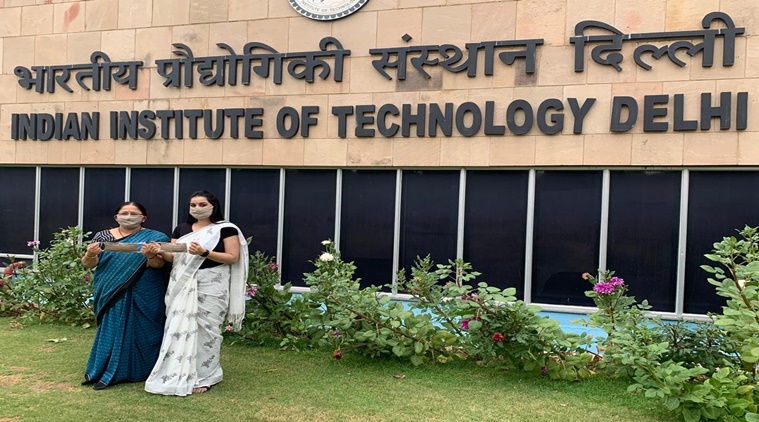 Team behind the mask (Image Courtesy: IIT Delhi)
Team behind the mask (Image Courtesy: IIT Delhi)
An alumnus and a faculty member from the Indian Institute of Technology (IIT) Delhi have jointly created an anti-microbial and washable face mask which can be reused up to 50 washes. Named ‘NSafe’, the masks will be available at a cost of Rs 299 for a pack of two and Rs 589 for a pack of four.
The institute claimed that NSafe mask is a highly engineered triple-layered product consisting of – “inner hydrophilic layer for comfort, a middle layer having antimicrobial activity and the outer-most layer having water and oil repellent behavior”. NSafe mask has 99.2 per cent bacterial filtration efficiency (at 3 microns) and complies with ASTM standards of breathability and splash resistance, the institute claimed.
“NSafe mask enhances protection to the wearer through three different mechanisms: mechanical filtration, antimicrobial decontamination and repulsion of aerosol droplets. After each usage (approximately 8-9 hours), the mask has to be hand-washed in cold water with mild detergent and dried thoroughly in the sunlight. After 50 usages, the mask has to be disposed in a sealed polyethylene bag and put in the recyclable waste bin,” the IIT said in a statement.
The team behind these masks consists of Dr Anasuya Roy, an IIT Delhi alumnus, founder and CEO of Nanosafe Solutions and Prof Mangala Joshi, Department of Textile and Fibre Engineering, IIT-Delhi and also founder and director of the startup. The start-up has been incubated at the IIT-Delhi.
Prof Mangala Joshi, Department of Textile and Fibre Engineering, IIT-Delhi said, “We believe this is the first fabric-based antimicrobial face mask launched in India, which is washable and reusable along with very high Bacterial Filtration Efficiency as tested according to ASTM standards. It is engineered to have very good breathability and comfort.”
Dr Anasuya Roy, Founder, and CEO of Nanosafe Solutions added, “The mask has been designed to maximise durability and dimensional stability so that the mask can be reused 50 times. Effective reusability is an important factor as single-use masks will cause huge disposal issues”.